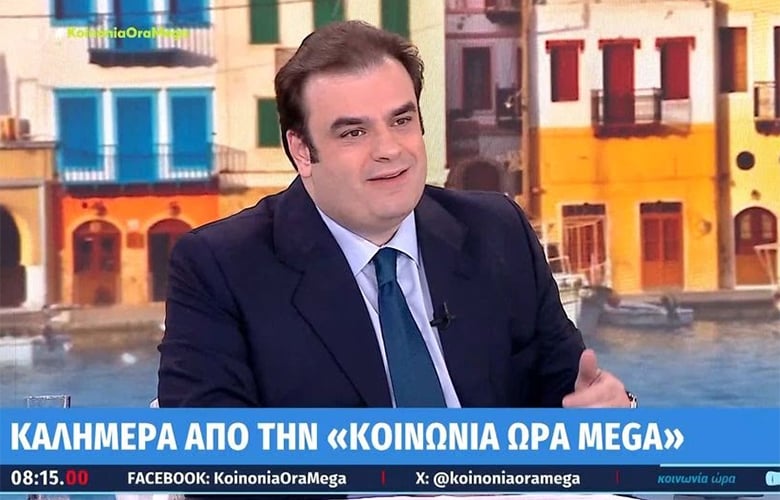The minister said that the government’s goal is to strengthen the middle class, with measures to be announced by the prime minister in the context of the TIF
The ministry’s intention to put an end to the time -consuming public disputes with citizens, the Minister of National Economy and Finance said this morning. Kyriakos Pierrakakis, Speaking on the “Mega Time Society” show.
Mr Pierrakakis focused on the regulation of the bill passed yesterday in Parliament and concerns the integration of the State in the processes of mediation As for appeals against property owners who hold legal titles.
“The State enters the mediation, the State Legal Council enters mediation. The public goes to the courts for up to 10 years until these procedures are completed, now that the Land Registry is completed, with the titles of ownership, sometimes the Turkish occupation. This is not normal. So it stops, “he said.
We want the State to be an ally of the citizen, the minister stressed. “We will make a layout, a powerful filter where it will be decided at a rational way whether the State will chase a case. “Mr Pierrakakis said, clarifying that this should apply specifically in cases of national interest, in national tragedies such as Mati, Mandra.
The minister revealed that the ministry is also processing a comprehensive arrangement for public appeals against citizens in major cases. “The guide will be the provision already voted on, on the basis of which the State resigns in the Court of Appeal from remedies for Mandra and Mati,” he said and clarified that this would be done by the summer and “concern the tragedy of the Tempi”.
Asked about the issue of public debts to individuals, totaling € 3.6 billion, Mr Pierrakakis responded that he had already set up the Ministry of Labor with the aim of quickly moving the procedures. “It is a very technical job, but it has been prioritized to stop delays in public debt to citizens,” he said.
On the issue of the roof, Mr. Pierrakakis referred to a set of policies aimed at resolving the issue, with the first financial support with the payment of a rent. “A meter of sidewalk,” as he described it, “to really reveal rental prices and reflect the reality as everyone agrees that the national average of rent is not 250 euros”. The overall actions, he added, includes the reduction of ENFIA, my home program, the incentives for renovation.
He also stated that institutional facilities are being examined to release real estate that owns banks and services, which in turn will help solve the problem of finding housing. On the issue of reducing tax rates in rents, Mr. Pierrakakis recommended patience to the TIF.
A new initiative that is expected to contribute greatly to the housing is the bills for the utilization of public real estate and the property of school inheritances. “In the summer there will be legislative intervention for these institutions,” the minister said, adding that “by completing the imprinting of public real estate, additional real estate will be available on the market.”
On Swiss franc loan arrangements, Mr Pierrakakis pointed out that it is already possible to regulate an out -of -court mechanism. He emphasized that the financial staff is considering any other measures it may take in the direction of integration of regulations and the new improved limits. “We are considering solutions that will not hit the securities of the Hercules program,” he said.
Once again, the minister clarified that the government’s goal is to strengthen the middle class, with weight reduction measures, which will be announced by the prime minister in the context of Ti.
Asked about the issue concerning the business of first -degree spouses and relatives, Mr. Pierrakakis pointed out that apparently politicians themselves are forbidden to have any business. Characterized as “populism in all greatness” the opposition’s reactions and “antisocial” in terms of European countries the measure that forbids the child of a politician who is studying or living in a foreign country to open a business. “It is a vertically anti -Thessaloniki law to prohibit the business activity of a first -degree relatives in the next country, especially when Europe is discussing the completion of the Economic Union and how it will consolidate deeper,” he concluded.
